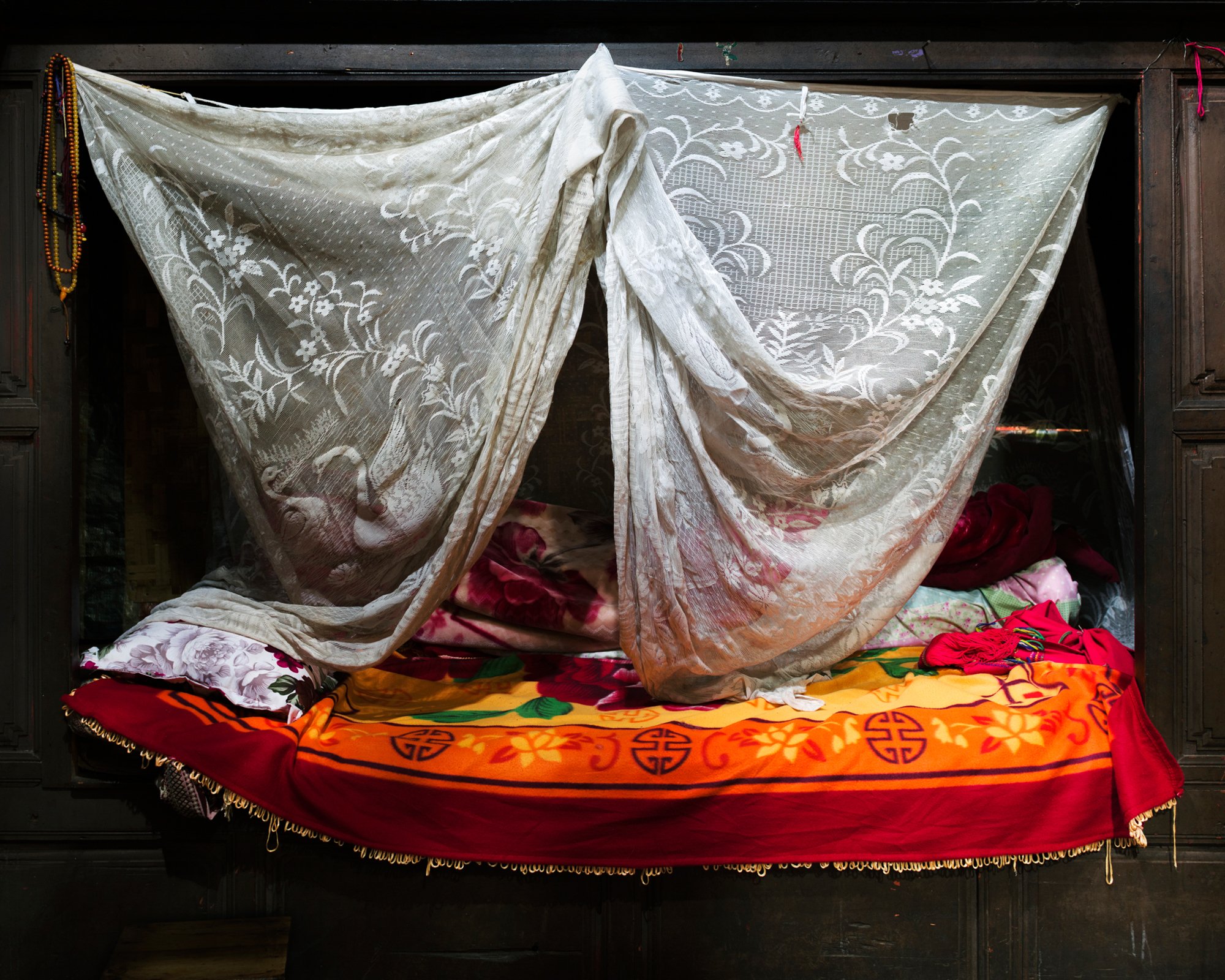Dabu
2015 - 2016
Life around Lugu Lake – high up in the Himalayas, straddling China’s Yunnan and Sichuan provinces – has been changing rapidly. Until quite recently, the Mosuo, a Chinese ethnic minority of around 40,000 people, enjoyed hundreds of years of relative stability in a complex matriarchal structure that values female power and decision-making.
Most famous among Mosuo traditions is the practice of the “walking marriage”: women may choose and change partners as they wish, and because Mosuo children stay with their mothers’ families for life, men only visit their female partners by walking to their houses at night. Since the head of a Mosuo household is always a women, responsible for all financial decisions and the passing of the family name and property, the Mosuo are often characterized as a matriarchal society.
Since the Cultural Revolution, when the exercise of their faith was forbidden and couples were forced to marry, this stability has been slowly crumbling. Today, Mosuo culture is misrepresented – often falsely portrayed as promiscuous – and exploited as a tourist attraction by the Chinese government. While the financial benefits of the tourism industry may counteract some of the problems caused by increasing poverty, most Mosuo families do not live in the developed area around Lugu Lake, and due to rural flight fewer of them are able to sustain a way of life traditionally centered around large, matrilineal clans sharing their household income.
My photographs focus on older Mosuo matriarchs, also called „Dabu“, who still remember a time when the community was shielded from outside influence. These women are proud guardians of Mosuo culture and tradition, but also acutely aware that these are slowly being eroded. By capturing the quiet and dignified rhythm of their daily lives, I also record a culture that is in danger of vanishing.
Selected Reviews and Publications
The National Geographic, "Where Women Reign: An Intimate Look Inside a Rare Kingdom", August 14, 2017
The Washington Post, "Inside a fading Chinese culture ruled by women". July 12, 2017
Foreign Policy, "Aperture: Photographs by Karolin Klüppel". January 2017
Spiegel Online, "Diese Frau hat das Kommando". March 8, 2017
Neue Züricher Zeitung, "Herrin des Hauses". February 6, 2017
Süddeutsche Zeitung Plan W, "Mütter mit Macht". Februar 2016










